简体中文
繁體中文
English
Pусский
日本語
ภาษาไทย
Tiếng Việt
Bahasa Indonesia
Español
हिन्दी
Filippiiniläinen
Français
Deutsch
Português
Türkçe
한국어
العربية
FIBO Group: A Closer Look at Its Licenses
Abstract:When selecting a broker, understanding its regulatory standing is an important part of assessing overall reliability. For traders seeking to protect their capital, ensuring that a platform operates under recognised and stringent oversight can make all the difference. Keep reading to learn more about FIBO Group and its licenses.

When choosing a broker, regulation is often the first line of defense for any trader. In the case of FIBO Group, what may appear at first to be a well-established trading company reveals a number of concerning facts upon closer inspection. Although the broker holds some regulatory credentials, several red flags regarding its licensing status and offshore presence should not be overlooked.
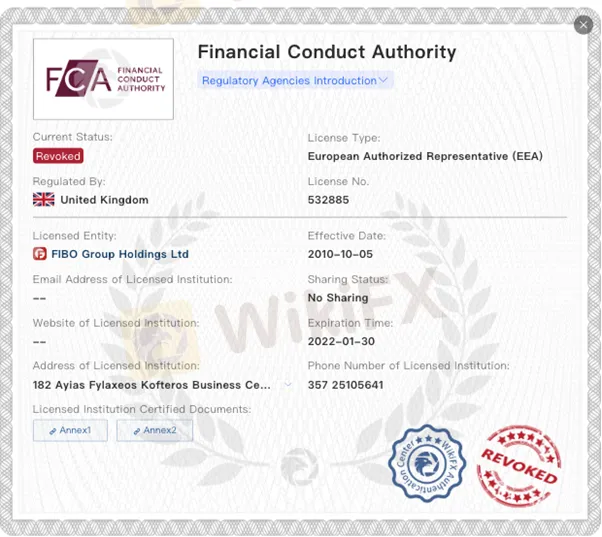
FIBO Group was once regulated by the United Kingdom‘s Financial Conduct Authority (FCA) under license number 532885. The FCA is known for being one of the most trusted financial regulators in the world, ensuring transparency and strict compliance from brokers under its supervision. However, FIBO Group’s FCA license is currently revoked, which raises immediate questions about what led to this change and whether the broker can still be trusted to meet high regulatory standards. A revoked license is a strong indicator that the broker may no longer meet the requirements of its former regulator, which can be a warning sign for traders trying to avoid scams.
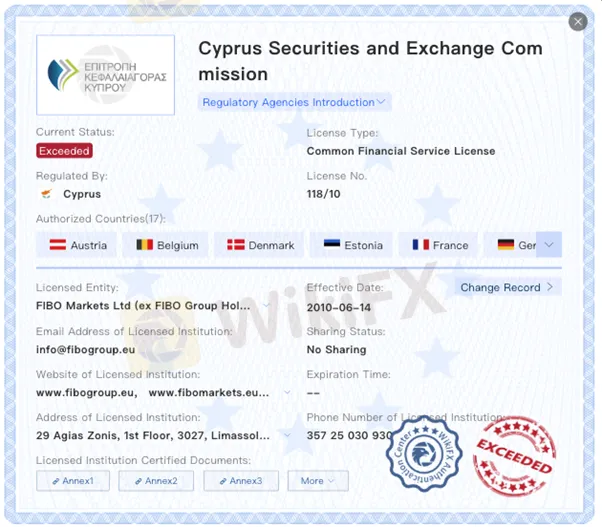
In Cyprus, FIBO Group is licensed by CySEC under license number 118/10. While this license is listed as active, the broker reportedly exceeds the business scope allowed under its CySEC license, operating in ways that go beyond its approved regulatory boundaries. This means FIBO Group may be offering services it is not legally authorized to provide within that jurisdiction. Such overreach may not only breach regulatory conditions but also increase risks for users who believe they are operating under a fully compliant framework.
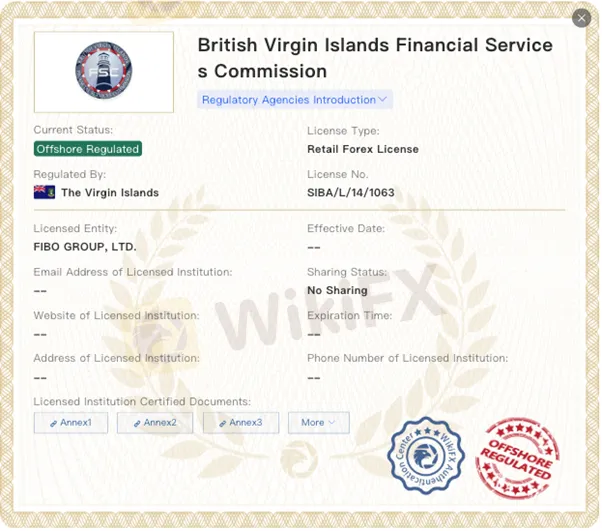
Another active license is held under the British Virgin Islands Financial Services Commission (BVI FSC) with license number SIBA/L/14/1063. While the BVI FSC does serve as a financial regulator, it is considered an offshore regulator, with less rigorous oversight compared to onshore authorities like the FCA or ASIC. Being registered in the British Virgin Islands, a jurisdiction known for its lenient financial regulations, means that FIBO Group can operate with more flexibility, but also with less accountability. Brokers operating offshore often escape strict regulatory scrutiny, which can create opportunities for unethical practices or even scams.
In fact, the brokers registration in the Virgin Islands is itself a point of concern. While it's legal to register companies there, the lack of strong investor protections means traders have little recourse in the event of disputes or losses. For anyone considering trading with FIBO Group, this offshore setup should be taken seriously, especially when paired with a revoked FCA license and a CySEC license that has reportedly been exceeded.

According to WikiFX, a platform that reviews brokers based on their regulatory background, platform operations, and user safety, FIBO Group scores just 4.95 out of 10. While this doesnt confirm that the broker is a scam, it certainly places it in a risk category that traders should approach with caution.
In summary, while FIBO Group may appear to be a regulated broker on paper, the full picture reveals multiple licensing issues, offshore risks, and signs of regulatory overreach. For traders seeking to avoid potential scams, it's crucial to look beyond just a list of licenses and ask more in-depth questions about their status and enforcement. A revoked FCA license and excessive activities under a CySEC license should not be taken lightly. As always, verifying a brokers current regulatory status and understanding the implications of offshore registration can go a long way in protecting your investments.
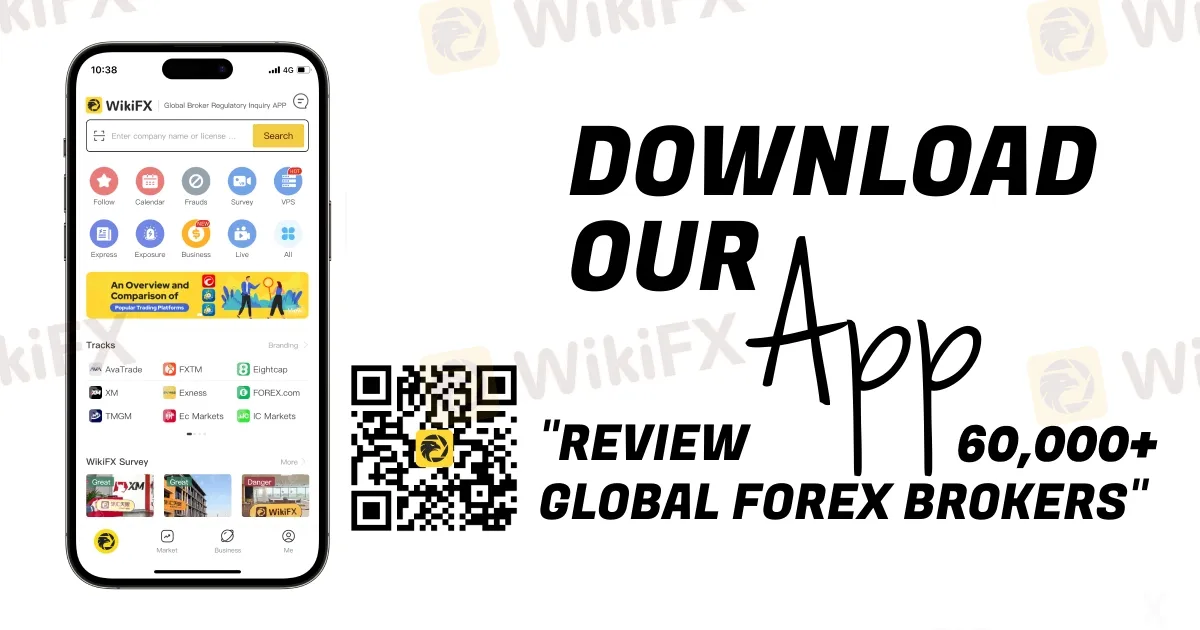
Disclaimer:
The views in this article only represent the author's personal views, and do not constitute investment advice on this platform. This platform does not guarantee the accuracy, completeness and timeliness of the information in the article, and will not be liable for any loss caused by the use of or reliance on the information in the article.
Read more
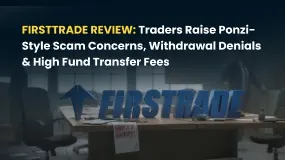
Firsttrade Review: Traders Raise Ponzi-Style Scam Concerns, Withdrawal Denials & More Issues
Have you lost all your capital while trading via Firsttrade? Does the US-based forex broker disallow you from withdrawing funds? Do you have to pay massive fees when transferring funds? Does your trade get affected because of frequent malfunction in the trading app? These have been haunting many traders at Firsttrade. Consequently, many of them have raised complaints online. In this Firsttrade review, we have shared such complaints. Keep reading to know about them.
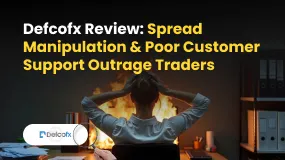
Defcofx Review: Spread Manipulation & Poor Customer Support Outrage Traders
Does the poor customer support service leave you stunned when trading via Defcofx? Do you receive blunt, negative responses from the support team on several trading queries? Does the Saint Lucia-based forex broker pile on the losses for you by manipulating forex spread charges? In this Defcofx review, we have shared some complaints made against the broker. This will further answer your question: Is Defcofx real or fake?
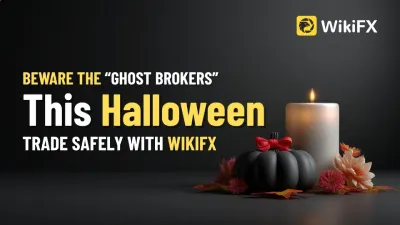
Beware the “Ghost Brokers” This Halloween — Trade Safely with WikiFX
Stay safe this Halloween! Spot and avoid ghost brokers in the forex world with WikiFX – your trusted tool for verifying broker legitimacy.

FP Markets Social Trading Expands Global Access
FP Markets Social Trading connects traders worldwide, offering copy trading, Forex strategies, and expert insights across global markets.
WikiFX Broker
Latest News
Ponzi Scheme Operator Sentenced to 14 Years in Western Australia
Chicago PMI Beats But Remains In 'Contraction' For Second Straught Year
How to Add and Take Out Money from Amillex Broker: A Complete Guide
T4Trade broker Review 2025: Is T4Trade Regulated?
FCA warning: These Firms are on the list
Don’t Get Scammed: A Roundup of Common Online Fraud Tactics in Forex
Dubai VARA Warns Against Vesta Investments
MH Markets Overview: Fees, Platforms, and Regulation
Is MultiBank Group Legit or Scam? A 2025 Regulation Review
Firsttrade Review: Traders Raise Ponzi-Style Scam Concerns, Withdrawal Denials & More Issues
Currency Calculator



